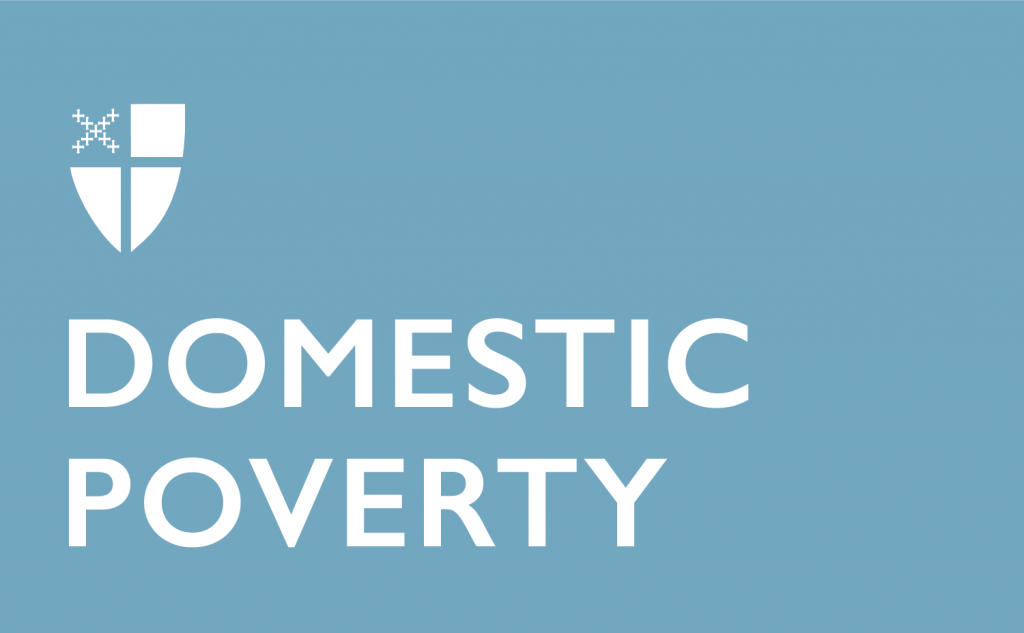St. John’s Episcopal, Columbus: Transforming a Community through the Power of Relationships
St. John’s Episcopal Church, Columbus, in the Diocese of Southern Ohio, has submitted their annual report for their 2015 Domestic Poverty Grant. The $17,600 grant, awarded last year, exists to engage Episcopalians in ministry among the economically impoverished in the United States, to provide the opportunity to the marginalized to overcome chronic adversities, to challenge unjust structures that perpetuate the cycle of poverty and to inspire the wider church to more deeply engage with the poor.
According to the grant report, written by the
Rev. Dr. Lee Anne Reat, the project, “Transforming a Community through the Power of Relationships” allowed St. John’s to engage in an Asset-Based Community Development process for their neighborhood. The process “brought new understanding of the disconnect between justice and charity as it helped [St. John’s] develop deeper relationships with [their] neighbors.” The majority of the grant was used to fund a dedicated community listener and organizer who worked with both an AmeriCorps VISTA (Volunteers in Service to America) member and volunteers from the congregation.
The report details five major accomplishments as the result of their work. The first is the introduction of the Asset-Based Community Development (ABCD) model to the St. John’s community and six partner congregations through workshops and ongoing conversations. This model, contrasted with a needs-based approach, eschews looking for and targeting community’s shortcomings, and instead focuses attention on community members’ gifts and strengths. Once these strengths and gifts have been discussed and identified, they are leveraged to empower individuals and institutions in the community to grow more fully into what God intends them to be.
The Episcopal Church and Episcopal Relief & Development continue to partner on several projects and resources devoted to Asset-Based Community Development, including the Episcopal Asset Map and Called to Transformation, an ABCD facilitator formation workshop. A recent Called to Transformation workshop, meeting June 2016 in Seattle, was covered by the Episcopal News Service here.
Additionally, with the help of the Domestic Poverty Grant, St. John’s was able to fund intensive training in a community listening process and the development of a Community Interests and Skills Survey. This survey targeted 77 households on five blocks along Columbus’ Avondale Avenue, where the church building is situated, and focused on three main categories: the respondent’s neighborhood, his or her interests, skills, and hopes, and his or her community. A blank copy of the survey can be found here.
Hanna Kahler, a member of the Episcopal Service Corps’ Confluence Year, and Will Myers, an Americorp VISTA volunteer, canvassed the neighborhood, making contact with 38 of the households, and asking neighbors such questions as “What do you like in this neighborhood that is already here?”, “What skills are you learning or interested in learning?”, and “If you needed help with something, whom in the neighborhood would you contact?” Partial results of the survey are as follows:
According to a copy of the St. John’s Messenger, one of the most surprising things about the survey process was not a response to the questions, but rather the fact that neighbors “seemed to really enjoy talking with them and answering their questions.” This was the first among many signs that the neighborhood was ready to engage with the church community.
Through their greater engagement with their neighbors, St. John’s was able to assemble a comprehensive list of resources available in their immediate area—including daily meal programs, benefit services, utility and rent assistance, healthcare, shower and laundry ministries, clothing and hygiene item distribution, and food pantries, all of which are available nearby and are thus accessible to people without regular transportation available. They were also able to compile a list of churches and religious communities in the neighborhood—the first of its kind in the Franklinton neighborhood of the city—providing a resource for networking and more thoroughly mapping the community’s assets.
Finally, through The Episcopal Church’s Domestic Poverty Grant, St. John’s was able to plan and hold two events for the neighborhood. The first was a Heritage Potluck in May, based around celebration of each other’s’ cultures. Parishioners and guests from along Avondale Avenue were invited to bring a dish of their favorite food to share with others in their neighborhood. Later in the year, they church held a block party, bringing together neighbors from the blocks that took part in the community survey. According to the grant report, “This was a great success, not only because it was great fun,” but also because it took seriously the strengths and abilities of community members, emphasizing “a culture in which neighbors shared their own gifts.”
When asked for the most important lessons learned throughout the life of the grant, Mother Reat responds with information and advice that can be exceptionally useful in developing a community, no matter the context: “We have learned that giving ‘stuff’ not only does not build relationships, but it prevents them from developing at all. We have learned that giving away ‘stuff’ does not keep people in relationship with the church; our numbers of participants in community worship and meals have not diminished at all. And we have learned that we have a great deal to share with others who are considering a similar sort of culture shift.”
St. John’s Episcopal Church is looking forward to continuing their work in the neighborhood, and is willing to share their methods and lessons learned with the wider Church. Their website is here and their Facebook page is here.
For more information on Domestic Poverty Ministries, visit us at http://www.episcopalchurch.org/page/domestic-poverty-ministries and like and follow Jubilee and Domestic Poverty Ministries on Facebook and Twitter.

